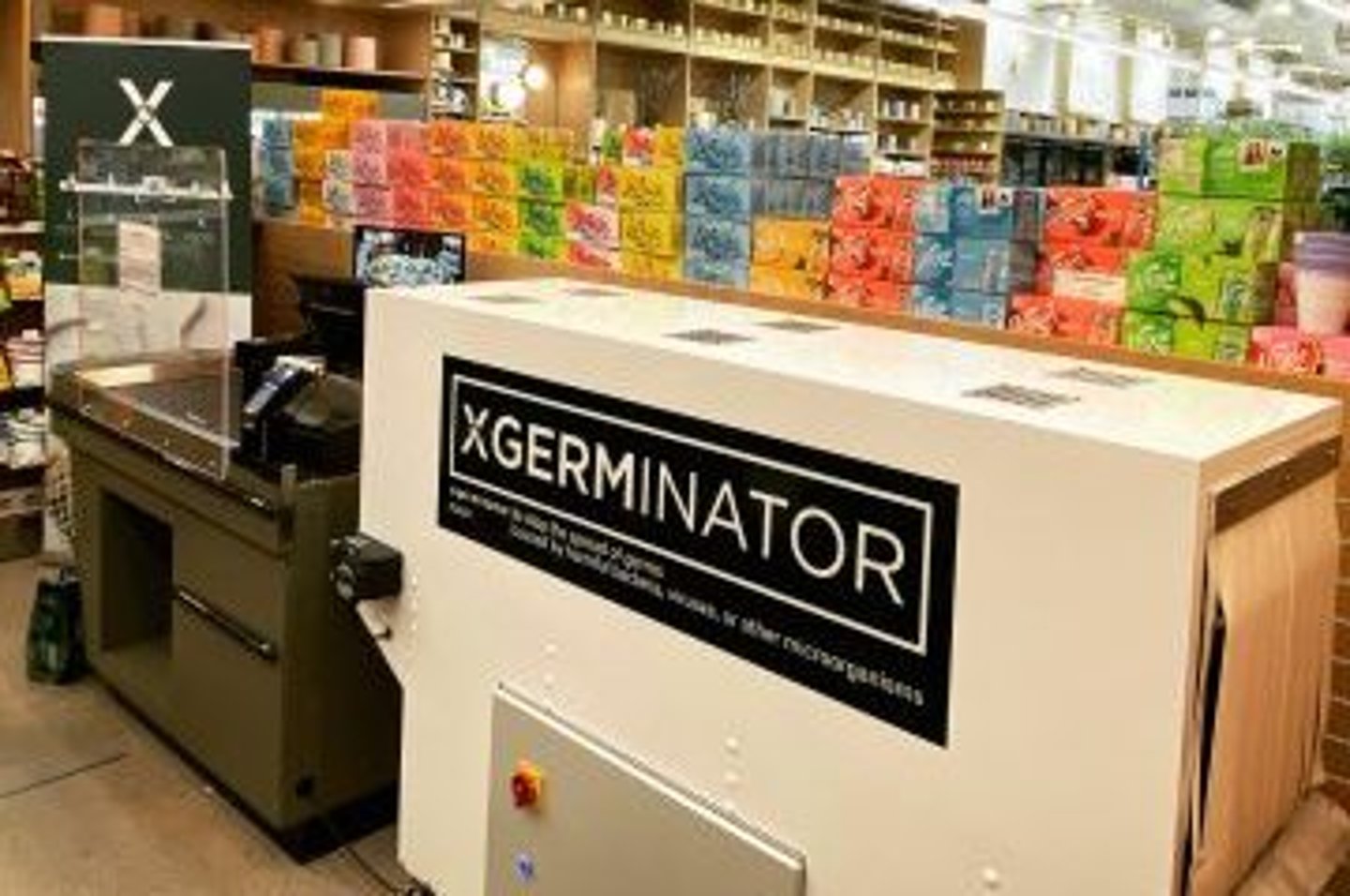Toronto entrepreneurs shine a new light on grocery disinfection
The last two months have seen a lot of new safety protocols and practices quickly adopted across the grocery industry.
But high-end Toronto grocer Summerhill Market made news last week for allowing the first test of a machine that exposes groceries to ultraviolet light to kill germs and viruses. The pilot ran at Summerhill's recently-opened location in the city’s Annex neighbourhood.
The XGerminator is the brainchild of two Toronto area entrepreneurs, Dara Gallinger and Alyssa Mincer. For now they just have the one prototype adapted from a machine developed by Waterloo company PrescientX.
The machine uses powerful germicidal ultraviolet C light that can provide 99.9% surface sanitization in just seconds, inactivating viruses and bacteria.
Like a lot of things in the COVID era, XGerminator happened fast. The idea itself is only six weeks old, when Mincer called Gallinger and raised the possibility of using UVC to clean groceries—an appealing proposition to shoppers who are taking the time to wipe down their groceries when they get home.
Gallinger liked the idea and as an entrepreneur herself, having founded Brodflour Bakery, her impulse was to act on it. “I was like yeah, let’s look into it,” she said.
They found PrescientX which specializes in healthcare infection prevention through, among other methods, the use of UVC. “They had a product that was built to disinfect N95 masks,” said Gallinger. “We put our heads together and thought we can probably take this concept and adapt it for the post-checkout retail environment. That’s how it all started, that’s how we had a prototype.”
After a few weeks they wanted to test XGerminator in an actual retail setting to gauge consumer reaction.
Summerhill co-owner Brad McMullen said he was happy to test something that could give customers an extra degree of comfort about shopping at his stores, even if it is just an early prototype.
“For me it was a quick ‘Let’s do it. Let’s try it and see what happens.’” he said. “We're a fail fast company, I would rather just do something first and then learn from it.”
Gallinger and Mincer assumed the service would appeal most to customers wiping down their groceries with disinfectant to address any concerns about coronavirus contamination.
“Actually the people who were using it—and were as delighted as the other people—were ones who said I don't actually wipe my groceries down but if this was made available to me I would absolutely choose it.”
However the experiment only lasted one day instead of the intended two weeks because it was too big for the space.
Gallinger said they already knew size would be a problem and have been working on smaller version that will emit less UVC light than what is needed in a hospital setting. “You don’t need as much of a UVC dose to inactivate most common bacteria, viruses and pathogens on hard surfaces,” said Gallinger.
McMullen too said he’d want a smaller model before he’d consider a long-term in-store commitment, but the larger one could also work for Summerhill’s delivery service with product being shipped from a central distribution hub.
“It would be a really significant value add for the online store because in that environment I have the space and the wherewithal to throw everything through a big tunnel,” he said. “Whereas in real-time testing with the cashiers in a cramped environment, I think we would have found it difficult just to have this big machine in our stores at this point.”

